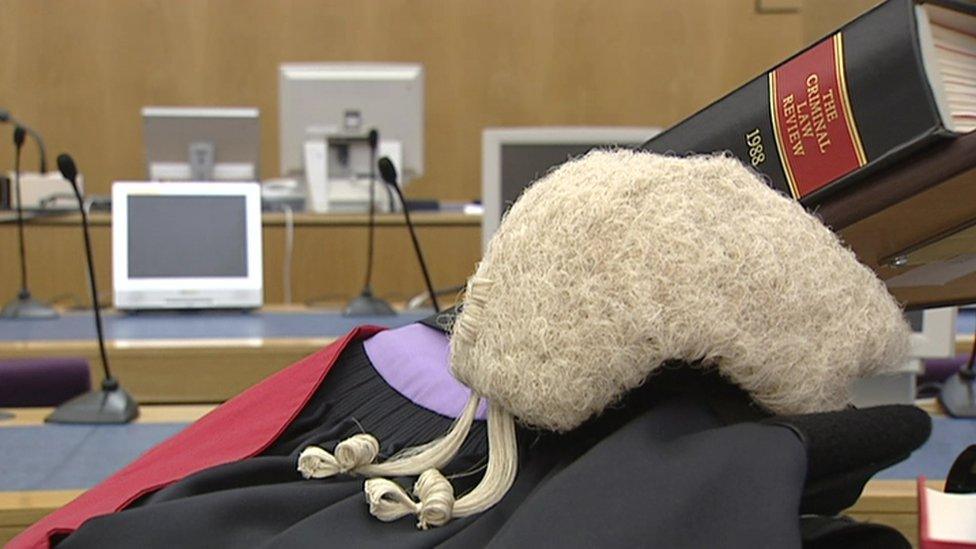Gillen review: Key recommendations
- Published

There are about 250 recommendations in Sir John Gillen's report.
Here are the 16 key recommendations:
Public access to trials involving serious sexual offences to be confined to close family members of complainant and the defendant.
Cross-examination of complainants to be pre-recorded and away from court - initially for vulnerable people but eventually extended to all complainants in serious sexual offences;
Publicly funded independent legal representation should be offered to complainants from the outset, up to but not including the trial;
Measures to combat rape myths and stereotypes, like suggestions that victims provoke rape by the way they dress or act;
New legislation to manage dangers created by social media;
More robust attitude by judges to prevent improper cross-examination about previous sexual history;
Steps to combat excessive delay in the judicial system;
Restructuring of the disclosure process;
Amend existing legislation ensuring juries do not bring sexual stereotypes into play;
No changes in the current law concerning the identity of the accused. They will be anonymous until they are charged, but from that point they will be identified;
Research projects should be commissioned on the prevalence, extent, nature and experiences of serious sexual offences;
Change needed to address the potential traumatisation of children and vulnerable adults during the judicial process;
Higher priority should be given to training people to be aware of the trauma suffered by victims, rape mythology, jury misconceptions and jury guidance;
All serious sexual offences should continue to be tried in the Crown Court with a jury, without the need for a gender quota or a not proven verdict. However, the pool of eligible jurors needs to be widened;
Alternative mechanisms, including an entirely victim-led concept of restorative practice, should be considered both inside the judicial system and parallel to it;
The appropriate statutory agencies should deliver an impact assessment into the Gillen Review that should include the cost of implementing the recommendations.
- Published24 April 2018